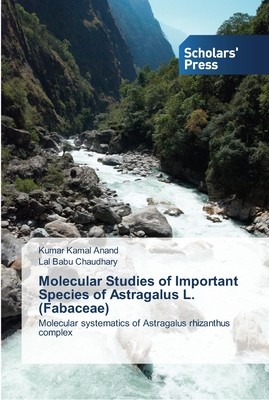
- We will send in 10–14 business days.
- Author: Kumar Kamal Anand
- Publisher: Scholars' Press
- ISBN-10: 3639511271
- ISBN-13: 9783639511277
- Format: 15.2 x 22.9 x 0.6 cm, softcover
- Language: English
- SAVE -10% with code: EXTRA
Molecular Studies of Important Species of Astragalus L. (Fabaceae) (e-book) (used book) | bookbook.eu
Reviews
Description
With about 3000 species worldwide, Astragalus is considered as most diverse and polymorphic genus of the family Leguminosae (Fabaceae) divided into eight to ten subgenera and more than 245 sections. It is chiefly distributed in temperate and alpine zones of Himalayas. Some species are the source of commercial gum tragacanth however, some are medicinally important used in treatment of cancer, HIV infection, tumors of eyes, liver, throat, chest and back pain in US, china and India. Few species have been reported poisonous for both livestock (cattle & sheep) as it contains Nitrotoxin, Swainsonine and Selenium.
EXTRA 10 % discount with code: EXTRA
The promotion ends in 20d.23:28:28
The discount code is valid when purchasing from 10 €. Discounts do not stack.
- Author: Kumar Kamal Anand
- Publisher: Scholars' Press
- ISBN-10: 3639511271
- ISBN-13: 9783639511277
- Format: 15.2 x 22.9 x 0.6 cm, softcover
- Language: English English
With about 3000 species worldwide, Astragalus is considered as most diverse and polymorphic genus of the family Leguminosae (Fabaceae) divided into eight to ten subgenera and more than 245 sections. It is chiefly distributed in temperate and alpine zones of Himalayas. Some species are the source of commercial gum tragacanth however, some are medicinally important used in treatment of cancer, HIV infection, tumors of eyes, liver, throat, chest and back pain in US, china and India. Few species have been reported poisonous for both livestock (cattle & sheep) as it contains Nitrotoxin, Swainsonine and Selenium.


Reviews